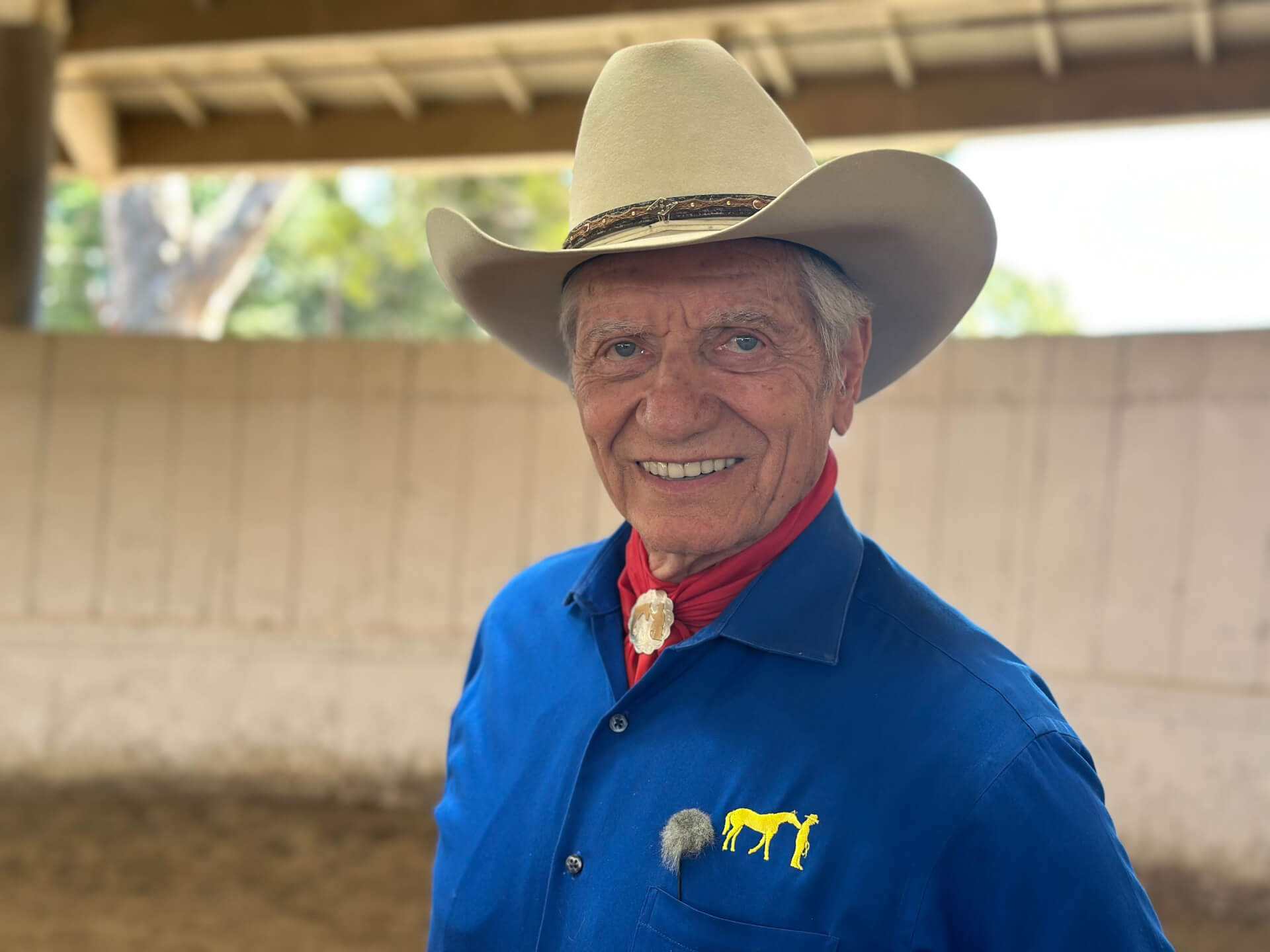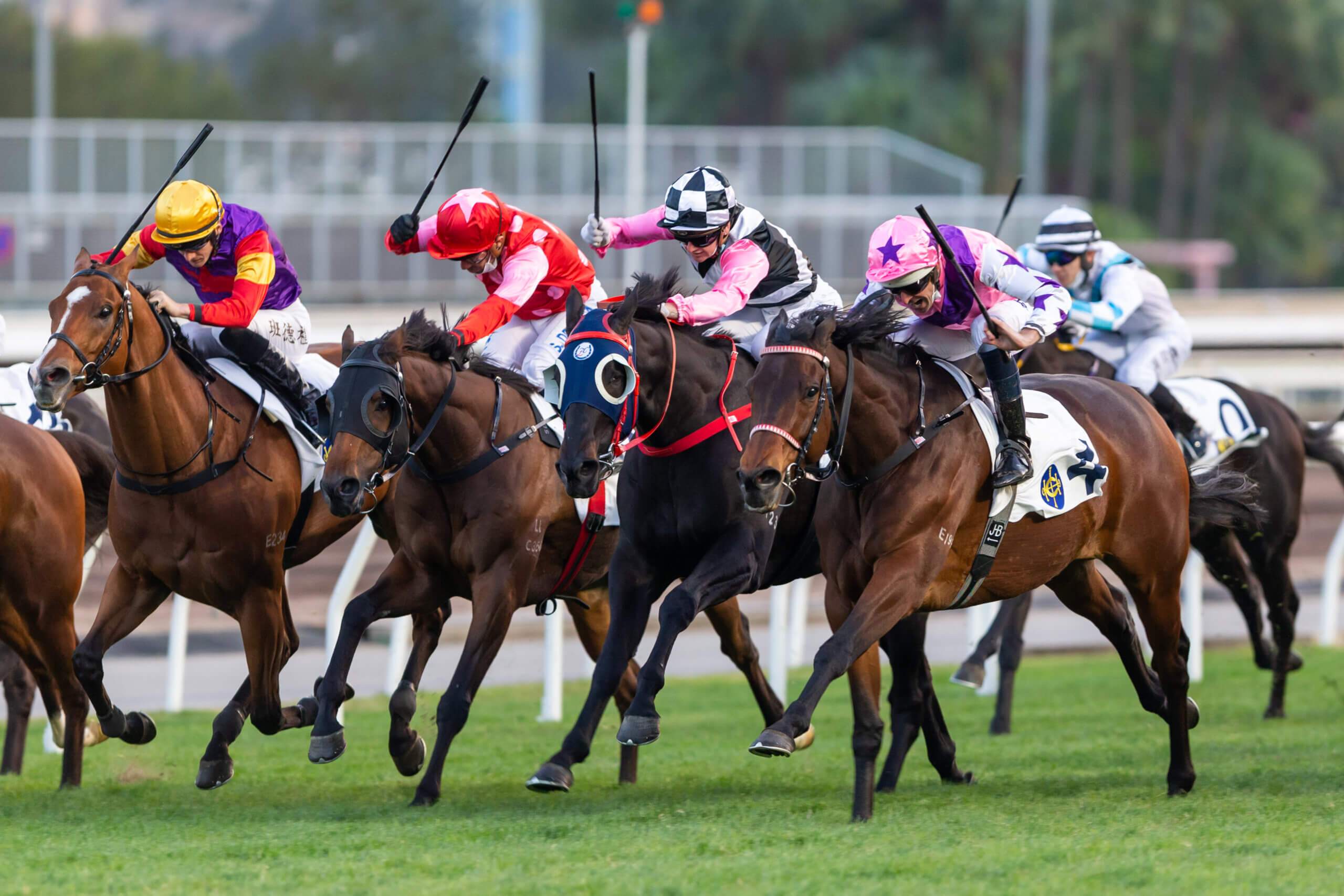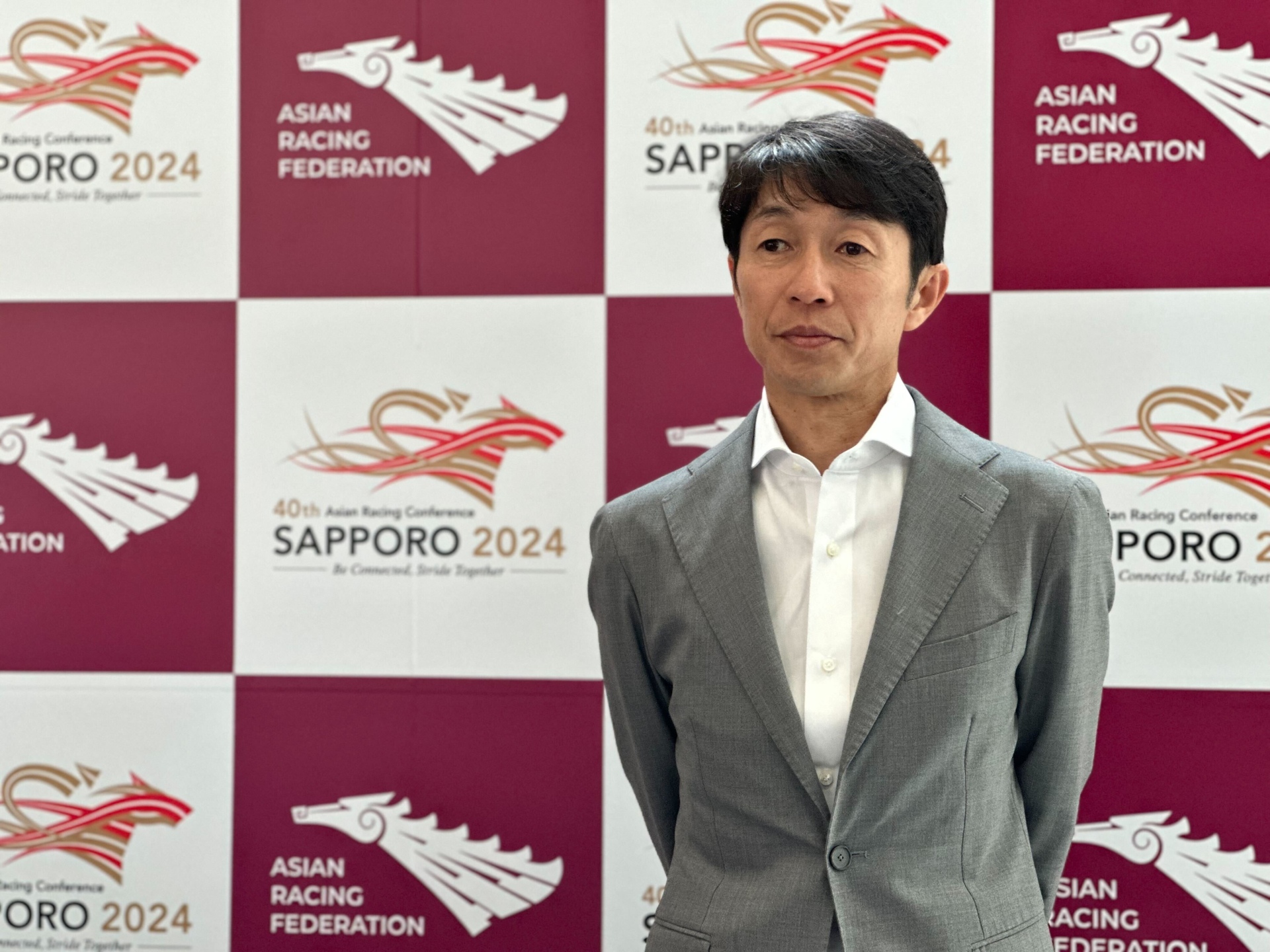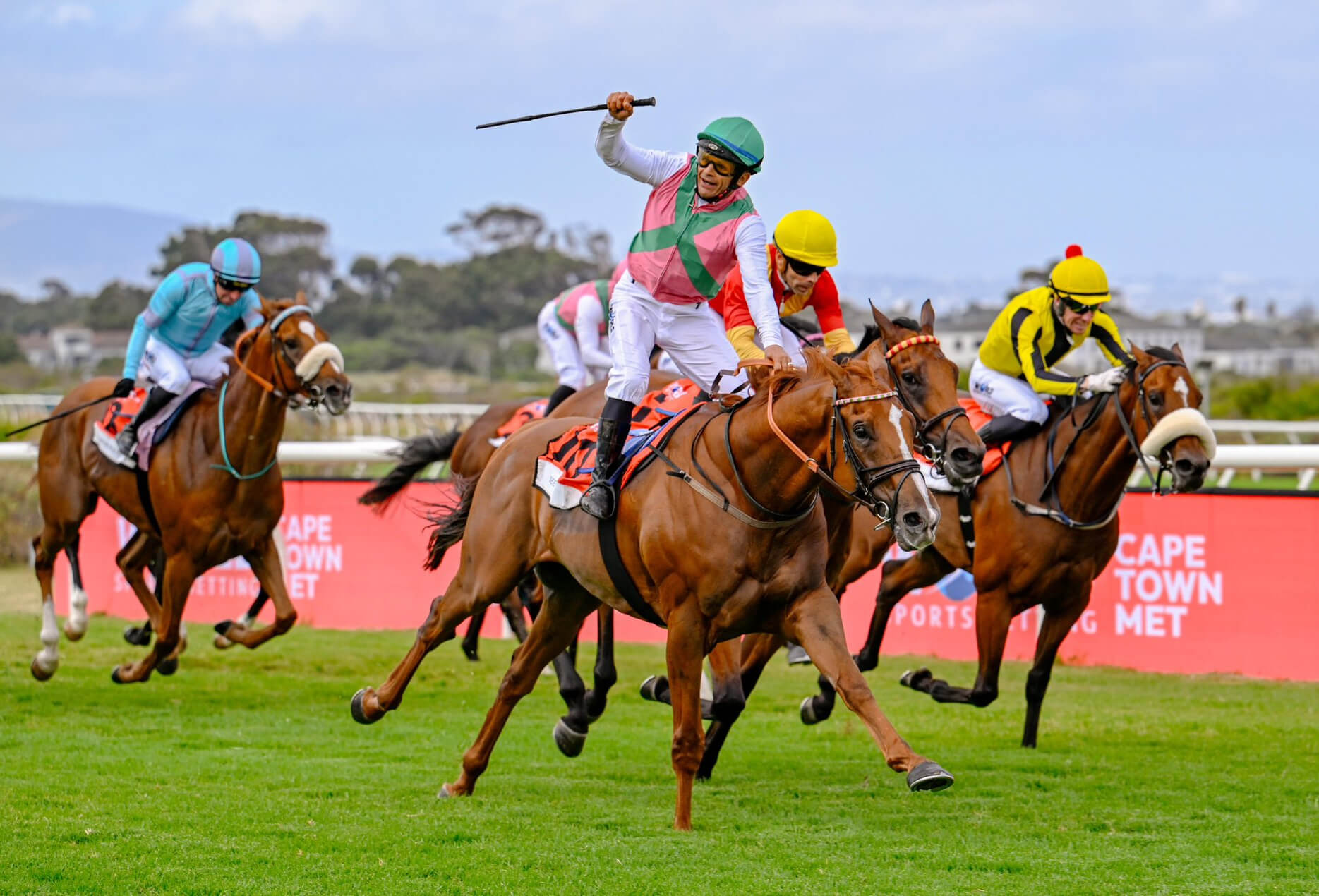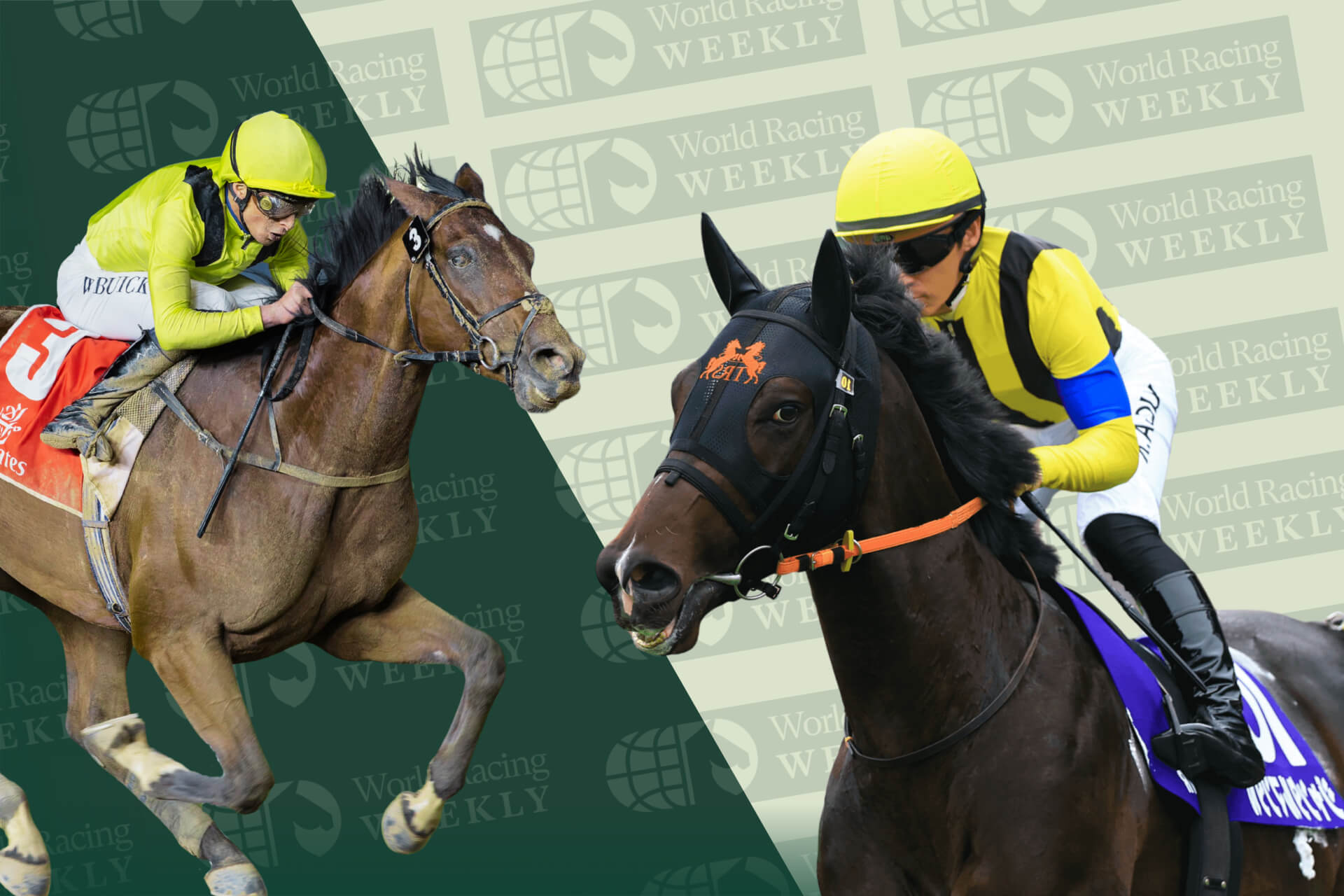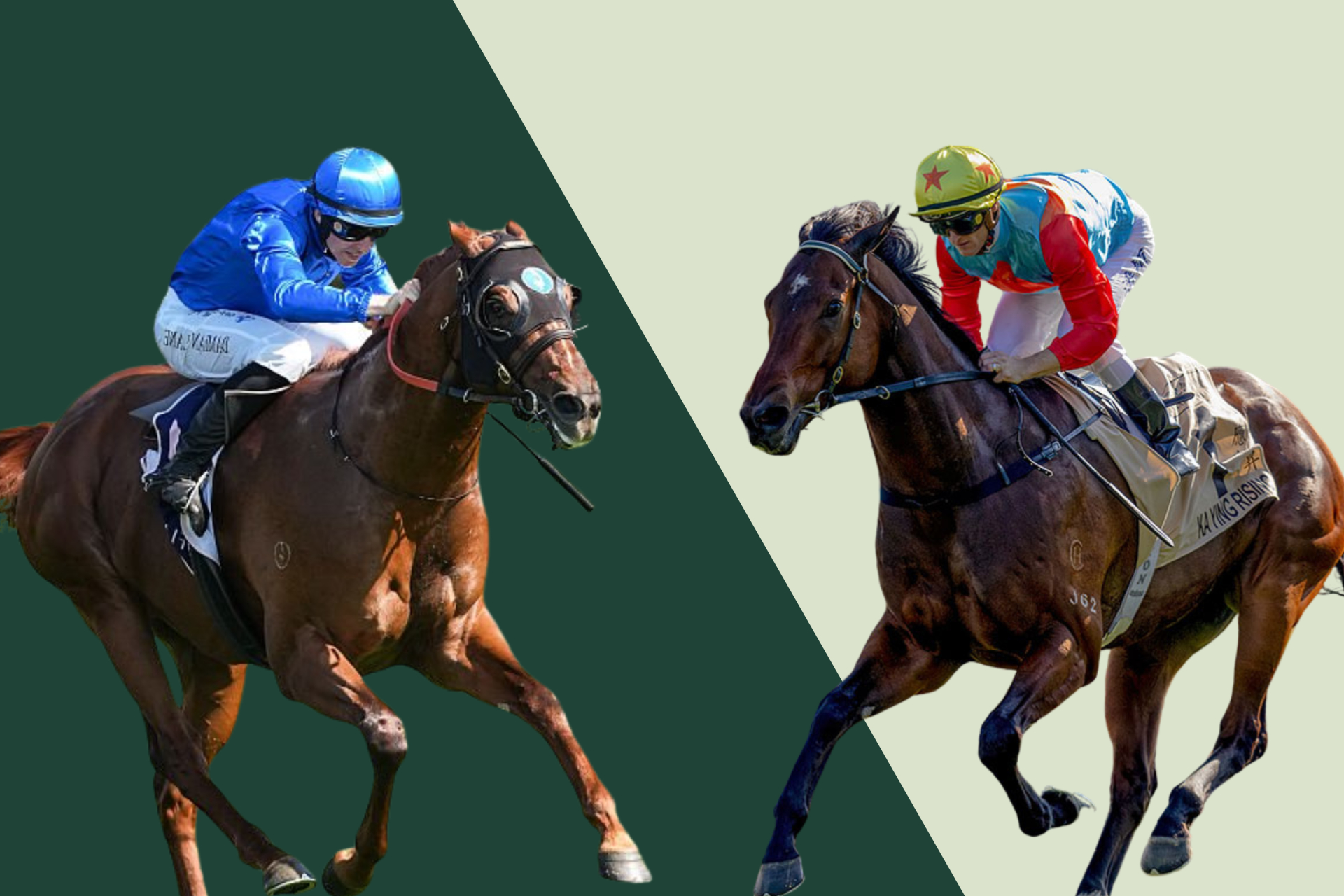Monty Roberts Still Loves Horse Racing, He Just Wishes It Was Done Differently
The legendary horse whisperer is still going strong aged 90 and wants racing to consider putting the whip away for good.
BEFORE Monty Roberts weighs in on racing’s most contentious issue he wants to make one thing clear.
“Well, I can tell you, straight forward: I love horse racing,” Roberts says. “It allows the most incredible athlete on four legs to go faster than he’s ever gone before to win the biggest race he’s ever won. And that’s exciting.
“But if you have to whip him to feel like you’re getting the most out of him, to me, that’s not exciting.”
Roberts is now 90 and as he sits in the classroom of his Californian ranch after a lesson in which he demonstrated his unique approach to educating young horses. Roberts is still teaching, even getting in the round pen, getting his hands on new horses. The new horses circle him one way, then the other – one eye and ear locked on the man in the middle of the yard – and eventually approach Roberts during his famed ‘Join-Up’ technique.
He still looks every bit the classic cowboy: the blue heavy cotton shirt and red neckerchief with silver buckle that has become his everyday staple. His blue eyes still sparkle under his broad-brimmed white hat. Perhaps the only sign of his advancing age is that he is wearing a pair of comfortable, slip-on Skechers sneakers – rather than leather riding boots.
It isn’t surprising that Roberts believes the whip is not necessary in racing given the philosophy he teaches here at Flag Is Up Farm, near Solvang, in the Santa Barbara region of California, is one of non-violence – there are no whips, twitches or spurs on this property – and the Monty Roberts International Learning Center prefers the term ‘horse gentling’ to horse breaking.
Roberts is quick to point out that he doesn’t believe the whip is cruel – he just doesn’t believe it is effective at obtaining best effort from a thoroughbred.
“Actually, I never thought horses were in great pain because of the whip,” Roberts explains. “Especially with the types of padded whips they use now. It was more the mindset of a jockey that is moving his body in a way, and hitting the body of the horse in a way that I believe is making the horse run slower because of all of that activity that is happening on his back.”
Roberts’ call for not just whip reform – but its removal from the sport – isn’t some anti-racing outsider’s view. Roberts has some serious credentials in the sport and his influence flows through racing’s modern history and far beyond the borders of California.
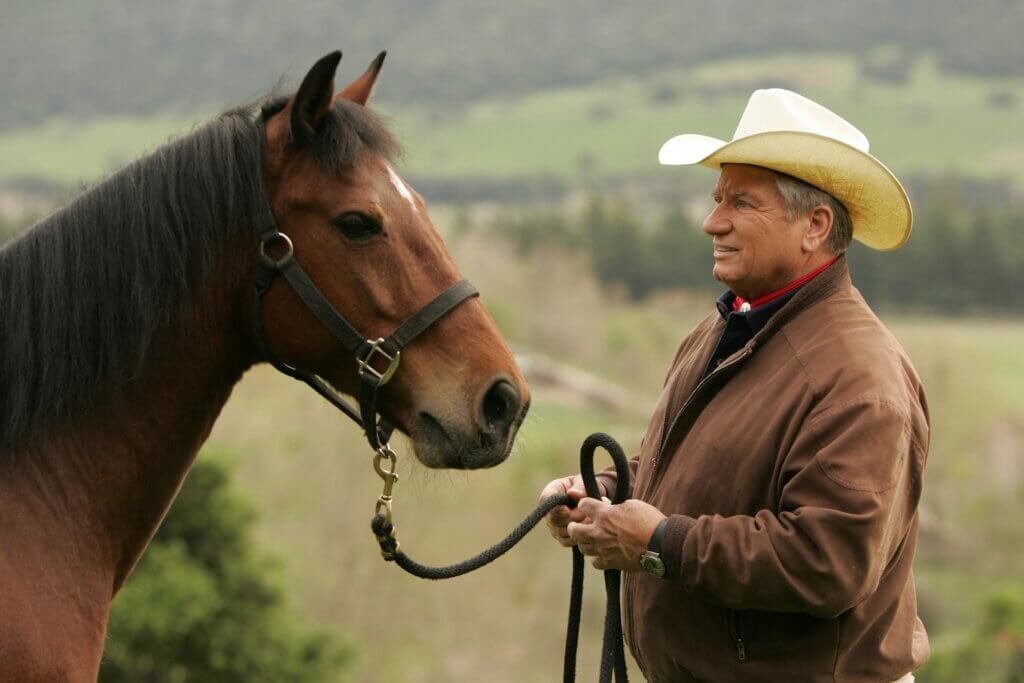
From Australia through Asia and Europe, Roberts’ teaching has informed racing’s culture through some of its leading figures. In Hong Kong, the former 13-time champion jockey-turned-trainer Douglas Whyte is a Roberts disciple, as is the Apprentice Jockeys’ School riding coach Felix Coetzee. Even the Jockey Club’s long-time CEO Winfried Engelbrecht-Bresges, who first met Roberts in 1991, has spent many hours with ‘The Horse Whisperer’ – although to be clear, none of that trio has ever expressed a wish that the whip was eradicated from the sport.
Roberts’ remedial work has been with some of racing’s most beloved and talented equine rogues, from Pakistan Star at Sha Tin – who, following a Roberts consultation, won two Group 1s after stopping mid-race 10 months earlier – and helping Chautauqua’s reluctance to step away at the start. But perhaps Roberts’ greatest project was the German great Lomitas.
Pakistan Star stopped mid-race and Chautauqua didn’t even want to start his races but Lomitas didn’t want to go into the barriers at all. After some Roberts magic Lomitas returned from a racing ban to take German Horse of the Year in 1991.
Before that Roberts had earned what was then a small fortune in the thoroughbred game through pin-hooking – buying yearlings at auction and then using his unique style to educate the horses, then selling at a profit as ‘ready-to-run’ two-year-olds.
Roberts’ records for the 18 years between 1973 and 1990 show US$19 million of sales at a 43 per cent profit. His purchases included the 1978 Triple Crown winner Affirmed, who he bought for just US$40,000, and 11 other stakes winners.
So why did Roberts not dive headlong into racing? Surely there had been big money offers. He even preferred unpaid work at times, including, most famously, for the late Queen Elizabeth II.
There was a practical aspect to Roberts stepping back from the sport – the ready-to-run sales shifted east from Californa to Kentucky and Florida. But really, it was never about the money for Roberts, then or now.
“It’s a great question,” Roberts said when asked why he did not devote more time to racing. “First of all, I never dreamed I was going to be worth four or five million dollars. And when I was worth four or five million dollars, I didn’t need to go and race and travel around. I had been in competition all my life. And so it wasn’t the excitement of competition that got me anymore. It was the excitement of doing the right thing so that I could show people that violence wasn’t the answer. That was my motivation.”
Still, Roberts understands the reality of racing and what pays for prize money.
“It always comes down to betting and turnover,” Roberts says. “But I think you have to set that aside when making a decision on the whip.”
He wants racing to “do proper research” and look to the countries where the whip has been outlawed or carried only as a safety measure – namely Sweden, Denmark and Norway – and chart if there has been safety issues or a noticeable drop in turnover.
Dennis Madsen, head of horse racing for the Swedish Racing Authority, told Thoroughbred Daily News in 2022 that racing in Scandinavia has seen “less interference” and “rarely dangerous situations” since the whip was banned, with horses running straighter and cleaner. Crucially, betting has not suffered — total handle on Swedish Thoroughbred racing has actually increased.
“We haven’t seen any negative impact on the betting,” Madsen said.
The contrast with Hong Kong is stark. This season, the Jockey Club introduced new whip guidelines preventing riders from striking horses on consecutive strides before the 100-metre mark. The changes were met with opposition, most notably from eight-time champion jockey Zac Purton.
“I don’t like it. I don’t agree with it,” Purton told the South China Morning Post of the changes. “I think everywhere around the world that they’ve brought a whip rule in, turnover has gone down and participation has gone down. I think it’s the wrong thing to do. We’re the best racing jurisdiction in the world and we should have just continued to play our game. If you’ve got the best house on the street, you don’t change it.”
Roberts believes this kind of clash highlights the need for collaboration. “We should bring experts from tracks all over the world. I wish they would come here and watch my work — these are intelligent people, they could easily see that I found a way that nonviolence gets a horse closer to a win than violence does.”
Not only does Roberts believe that the whip isn’t effective, his theory that horses run “into pain” means it slows them down and is sometimes dangerous in the way it causes interference when horses veer.
“When you strike that horse, let’s say left-handed, and you’re at the hundred yard mark from the wire, and you do this, that horse’s left ear will go toward that strike. His eye will go toward that strike. And he will lean toward that strike. And that slows him down before he gets to the wire.”
“In the end, without whips, a horse and a jockey still win the race,” Roberts says.
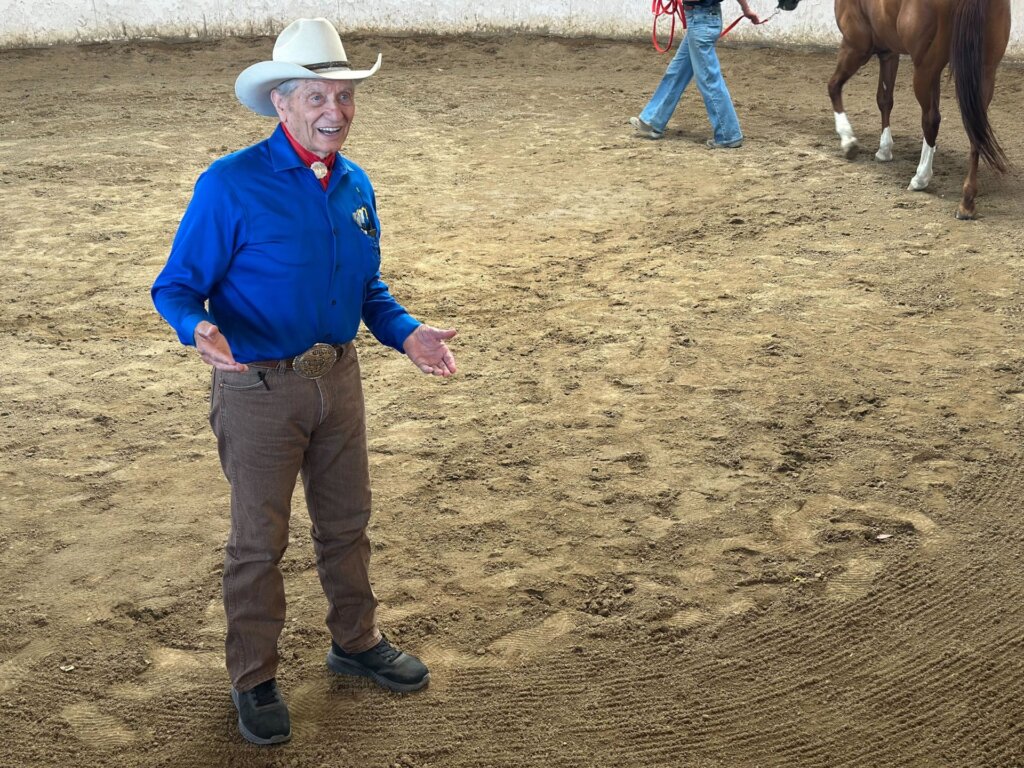
When Roberts speaks these days he does so with an acute sense of his mortality. He credits God for his gifts and speaks about what he wants to leave behind at the farm, where his daughter Debbie is a driving force.
“There are some wise human beings out there who would say, ‘well, why don’t you take all this knowledge and use it for yourself? You could be a $10 million owner in no time at all’,” he says.
“Well, I don’t want to do that. I want to show them how things can be done without violence and I want the school and this farm to continue. I want those kinds of things rather than earning a lot of money from pushing a horse to his limit.
“I believed it would work from the very day I started it all,” he adds. “And it has kept working.” ∎
